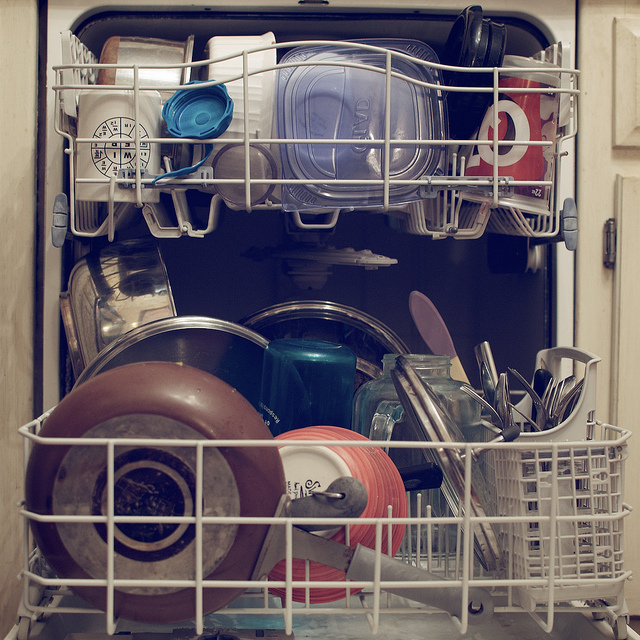There comes a point in time when a dishwasher owner isn’t the happiest with their dishwasher's performance often resulting in spotty or unclean food dishes. We have a few tips and tricks to help you resolve some of these issues.
1) Turn on the hot water
Stop! Before you turn on your dishwasher, begin by running hot water through your sink faucet and then turn it off. By running hot water before you begin, your dishwasher cycle will be prepped to begin with warm water instead of wasting the 1st part of its cycle with cold water.
2) Clean Out the Sprayer Arm
With all the gunk from food, it is important to clean your dishwasher’s sprayer arm. Just remember to turn off your dishwasher prior to manually removing the debris. Some people use a toothbrush while others use toothpicks to remove the food debris from the sprayer arm holes. Feel free to use a mixture of liquid soap and water or vinegar, and allow your mixture to set on the sprayer arm. Then, refer to tip #3.
3) White Vinegar is Your Best Friend
If your dishwasher smells or has a soapy build-up, vinegar is an eco-friendly and green way to clean your dishwasher, thus resulting in cleaner dishes. Although this is a very safe method, it never hurts to check your manual to make sure vinegar is OK to use. Simply pour in 1-2 cups of white vinegar (that’s it, no detergent necessary) into the bottom of your empty dishwasher before you begin your cycle. The vinegar will cut through soap scum, disinfects, and dislodges those stubborn food bits.
4) A Simple Scrape Will Do
You don’t have to clean and rinse your dishes, your dishwasher is an amazing machine made to handle food particles (stop making more work on yourself). With this being said, it is not an excuse to put a 3 course meal into the dishwasher. A simple scrape from the remains of your delicious dinner will help out with cleaner dishes.
5) Less is More: Don’t get too detergent happy
Many people are using way too much detergent. Too much detergent can lead to sudsy leaking, soap residue, and can even begin to permanently etch your glassware. Refer to your dishwasher’s manual, but 9 times out of 10 most of you will only need to fill your detergent to the 1st line (it also helps if you know how hard or soft your water is). By cutting back, can you imagine the money saving benefits? Also, make sure to use detergent that is specifically for your dishwasher (psst— liquid dish soap is a big no no).
6) For the Love of Your Dishwasher, Don’t Overcrowd the Dishes
While you don’t want to waste resources by barely filling your dishwasher, you don’t want to be counterproductive by overcrowding your dishwasher with food dishes and utensils. By overcrowding dishes, the less the water is able to be exposed to your dishes. While loading, give your dishes, cups, pans, ect enough room to breathe so-to-speak. By having a equilibrium of not too full nor to empty, you will have the ease of mind knowing your dishes will come out sparkly clean without the risk of breaking.






